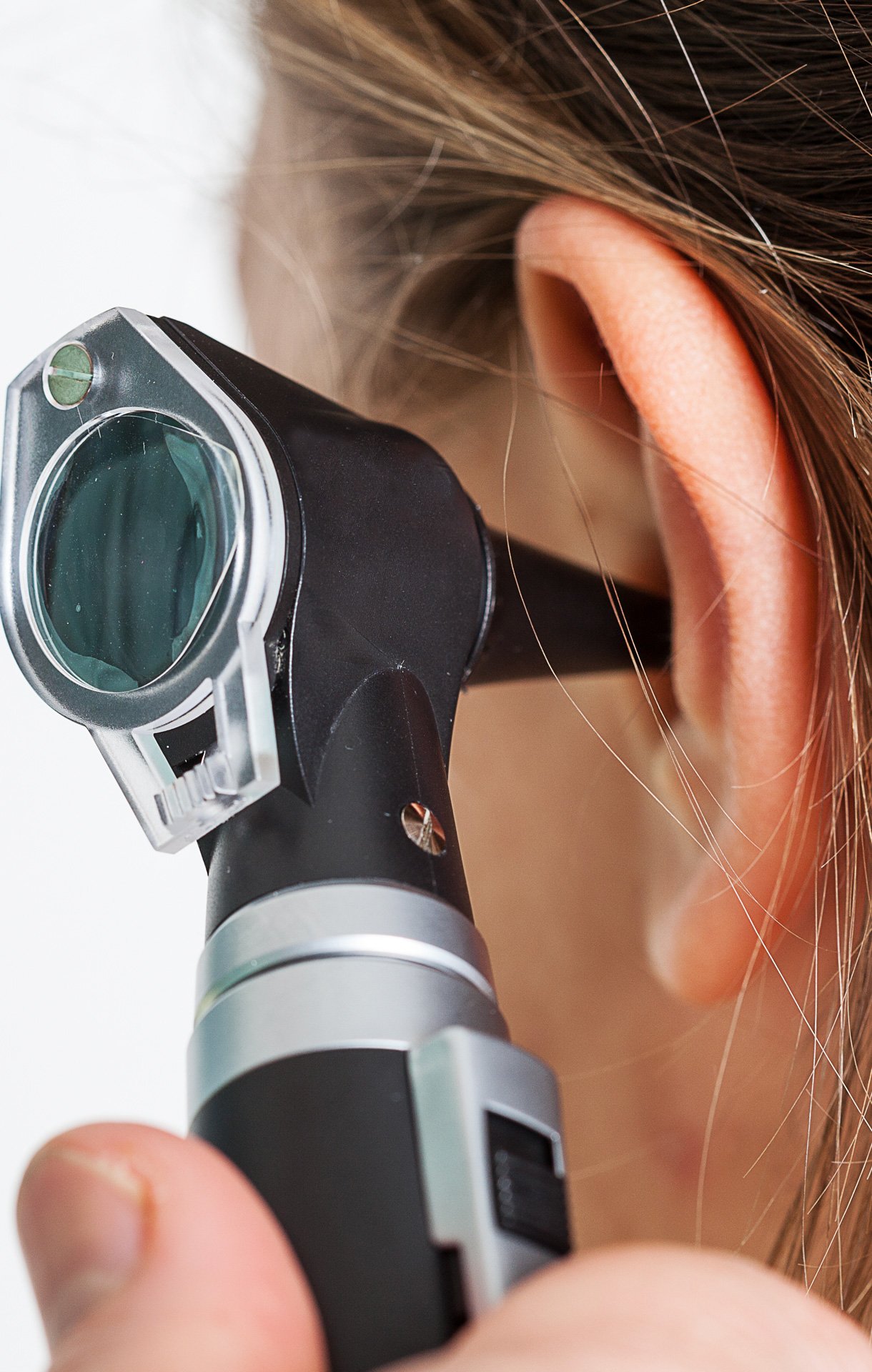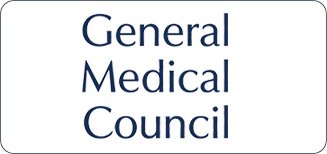Hearing Disorder Specialists in Harley Street, London
Learn More Below About The Different Types Of Hearing Loss

We Care
Types of Hearing Loss
Conductive Hearing Loss
Conductive hearing loss is a problem with the sound going into the ear and eventually reaching the cochlea. Conductive hearing loss can be divided according to the area affected.
External Ear Canal Problems
Ear infections: infections of the external ear canal (otitis externa) can cause pain, hearing loss, tinnitus and sometimes rarely vertigo. It can be accompanied by discharge. It can be treated with drops and/or topical or systemic antibiotics.
Middle Ear Problems
Infection of the middle ear (acute otitis media) can cause pain, hearing loss, tinnitus, vertigo and muffled hearing. It can also cause headaches and temperature. It requires treatment with antibiotics and if persistent may require surgery sometimes.
Glue ear or otitis media with effusion is build up of fluid behind the eardrum. It can occur in both adults and children although tends to be more common in children. Symptoms include hearing loss, aural fullness (muffled hearing and sensation of pressure in ear), tinnitus and rarely vertigo/dizziness. It can occur secondary to eustachian tube dysfunction. Management options include medical measures such as nasal sprays as well as surgical intervention if appropriate.
Negative middle ear pressure secondary to eustachian tube and middle ear dysfunction can sometimes result in a mild conductive hearing loss with symptoms of tinnitus and muffled hearing. Management tends to be predominantly medical although sometimes surgical options can be considered.
Problems With Middle Ear Bones (Ossicles)
Otosclerosis is a condition where the three little middle ear bones (malleus, incus and stapes) become less mobile and result in a problem with the sound going into the ear and reaching the cochlea (conductive hearing loss). Sometimes it can also be associated with tinnitus and vertigo/dizziness. Management can be conservative, surgical or with hearing aids. A bone conduction hearing aid may be a suitable option for this type of hearing loss.
Disruption of the ossicular chain due to previous trauma or perforation can again result in a conductive hearing loss. Management can again be surgical, conservative or hearing aid amplification including bone conduction devices.


Problems with eardrum (tympanic membrane)
A hole in the eardrum secondary to trauma or other causes can result in conductive hearing loss. This does require further evaluation and appropriate management. Tympanic membrane perforations can result in ear infections although can be managed with appropriate measures. Management can be conservative, surgical or with hearing aid amplification.
Cholesteatoma is a collection of cells resulting in destruction of the eardrum, middle ear ossicles and can extend even further. It usually results in a conductive hearing loss as well as tinnitus and sometimes dizziness/vertigo.
Sensorineural Hearing Loss
Hearing loss arising from the inner ear cochlea and the hair cells is known as sensorineural hearing loss. There are many causes of sensorineural hearing loss. Medical investigations are recommended for all early onset hearing losses as well as progressive, atypical, and asymmetrical hearing losses. Any hearing loss associated with other symptoms such as vertigo or dizziness is also a reason for medical investigations. Causes include genetic, medications (ototoxicity), trauma, age-related deterioration, inflammatory disease amongst others. Investigations include blood tests, scans et cetera.
Congenital Hearing Loss
Congenital hearing loss tends to be present at birth and related to genetics or events around childbirth. It may sometimes present a later stage such as childhood or early adulthood. It can be stable or progressive. It can be associated with other medical conditions. Early accurate diagnosis and medical investigations are vital for management and prognosis. Congenital hearing losses can be both congenital or sensorineural, although the latter is much more common.
Genetic hearing loss
Genetic hearing losses represented birth or later and even as late as early adulthood. Sometimes it may only present with or following exposure to certain ototoxic medications such as gentamicin antibiotic. Genetic tests are available for certain types of hearing loss. It will help determine prognosis and future risk.
Asymmetrical Hearing Loss or Unilateral Hearing Loss (One-Sided)
Hearing loss affecting just the one area can indicate potential underlying problem with the auditory nerve and its pathways to the brain. Appropriate identification and investigation is required for diagnosis of problems such as acoustic neuroma other tumours. Appropriate early imaging such as MRI scan of the inner ears is an important part of investigation alongside blood tests and other investigations.


Progressive hearing loss
Rapidly deteriorating hearing loss may suggest an underlying pathology affecting the inner ear, auditory nerve or brain. Early investigations are crucial as it may reveal a potentially treatable cause of the deteriorating hearing. Assessment also includes consideration of all other medical problems such as diabetes which can have an impact. Detailed audiological assessment and MRI imaging has recommended in all patients.
Auditory Neuropathy Spectrum Disorder (ANSD)
Auditory neuropathy is a problem of the nerve conducting sounds from the cochlea to the brain. It can arise as a result of problems during pregnancy, birth or occur later in life secondary to a medical problem such as tumours. Patients commonly present with hearing difficulties much worse than predicted by the standard hearing test. Hence this diagnosis requires detailed assessment of hearing with standard hearing test, middle ear tests, tests of cochlea (inner ear hearing organ) function, and tests of auditory nerve function. Imaging such as MRI scan and blood tests, play a big part in the diagnostic process. Our experts at Harley Street, Audiovestibular clinic, have published book chapters on this topic and have had significant experience in managing these patients with complex hearing loss. A standard hearing aid will probably not be adequate for management.
Auditory Processing Disorder (APD)
Auditory processing disorder is when there is a range of hearing difficulties such as difficulty understanding speech in background noise, different accents, similar sounding words and processing instructions. The problem usually arises because of processing difficulties of speech sounds in the brain. The diagnosis of APD requires a battery of specialist audiological tests, clinical and medical assessment as well as imaging (MRI scan), and blood tests. It also requires the investigation and ruling out of an underlying inner ear peripheral hearing problem. At Harley Street Audiovestibular clinic, we currently do not offer the more specialised auditory processing tests, but are able to provide detailed audiological assessment in order to rule out an underlying inner ear cause of hearing loss.
In the Spotlight
Highly Specialised Medical-Led Service
Harley Street Audiovestibular Clinic is a CQC regulated service, providing evidence based, high-quality, medical consultant physician-led service.
We offer consultation and clinical assessment, aided and supplemented by high-quality, state-of-the-art audiological and vestibular diagnostics, delivered by an expert team.
Features
What We Offer
Appointments Available Within 1-2 weeks.
Quality Care
Experience
Medical-Led Evidence Based Diagnosis and Management
Central London Location
High Quality Audio-Vestibular Testing
Testimonials
What People are Saying
Frequently Asked Questions
What are some of the signs of hearing loss?
Common signs that a person is losing their hearing include having difficulty understanding what others are saying, asking others to repeat themselves and struggling to pick out individual voices in a crowded setting. If it sounds to you like others are mumbling that may also be a sign of hearing loss, as is having to turn up the volume on everything in order to hear well.
What are the causes of hearing loss?
Hearing loss has a variety of causes. It can affect the inner ear hearing organ or hearing nerve, or it can affect the way sound travels into the ear. The most common cause of hearing loss is ageing. But it is hardly the only one. Exposure to loud noises, excessive earwax buildup, ear infections, head trauma, Meniere’s disease, brain tumours, and reactions to certain drugs are other potential causes.
Are there different kinds of hearing loss?
There are 3 primary types of hearing loss. The first is sensorineural. Sensorineural hearing loss is a result of damage to the nerves of the inner ear. This may be the result of ageing, exposure to loud noises or some type of trauma. Conductive hearing loss is the result of obstructions being present in the outer or middle ear. This may include excessive wax, hole in the ear drum, ear infections, ear operations and problems with the middle ear bones. The 3rd type is mixed hearing loss which results from a combination of factors.
Will I have to wear a hearing aid?
It depends on the extent and cause of your hearing loss. If wax buildup is to blame, a thorough cleaning may alleviate the problem and can be performed by our audiologists or medical doctors. But if the hearing loss is caused by trauma or prolonged exposure to loud noise you may have to wear a hearing aid in order to hear properly. Some conductive types of hearing loss can be fixed with surgery, and should you have this, we can recommend some of our ENT Surgeons we work closely with.
Will I need a hearing aid?
It depends entirely on the results of the audiology test. If the Audiologist from Harley St AVM deems it necessary, they will recommend a hearing aid and answer any questions you may have about the device. You can get these via the NHS. Or, if you wish, you can purchase the latest, most up to date model of hearing aid privately via our specialist audiologist at our clinic The latest hearing aids have come a long way, are much smaller and incorporate the latest advances of technology enabling you to connect with your mobile phone and computer.
Can hearing loss be prevented?
Some types of hearing loss can be prevented by simple lifestyle changes. If you are continually exposed to loud noise on the job, make sure you always wear ear protection. If you enjoy going to clubs where it tends to get loud, consider bringing earplugs with you and using them. Don’t listen to very loud music through your earphones. And try to avoid sticking cotton swabs or other items into your ears in an attempt to clean them.
Our Associations












The Care Quality Commission (CQC) is a public body of the Department of Health and Social Care established to regulate and inspect health and social care services in England.
CQC registration is a marker for standards of care. It is a mandatory requirement of all organisations which provide vestibular care or diagnostics.
Harley Street Audiovestibular Clinic is fully registered and compliant with all the stringent CQC requirements, ensuring you care is in the best possible hands.








